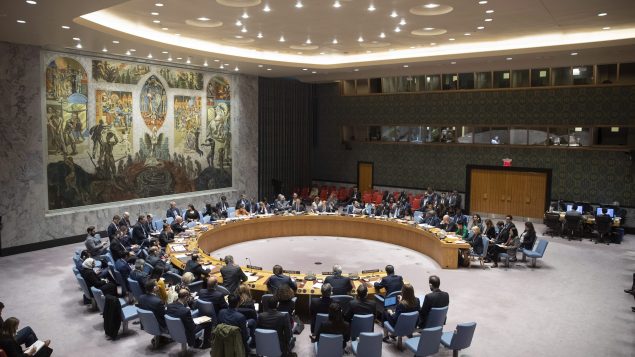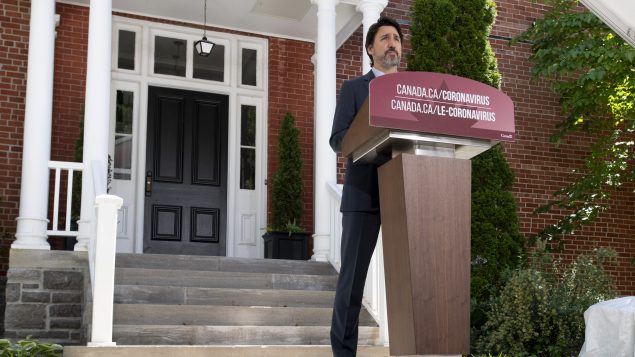Canada will remain a major player on the international scene no matter whether it gets elected to the United Nations Security Council or not, Prime Minister Justin Trudeau said Wednesday as the country awaited results of the closely watched vote at the world body.
Canada is vying to become one of the ten elected temporary members joining the Security Council for two years and is in a tight race with Norway and Ireland.
“We’re running for the Security Council seat because we saw a unique opportunity to engage with our partners across the UN, to build sustainable peace, and to make real progress on the issues that matter,” Trudeau said during his daily briefing in Ottawa.
Canada has stepped up on the world stage over the last five years with international engagement on climate change, on protecting the oceans, advancing the rights of women and innovative ways of financing development, Trudeau said.
“Canada has continued to be a strong voice on the world stage because this is what Canada does well and we will continue to do it,” Trudeau said.
“Yes, a seat on the UN Security Council will be an additional lever and an extra way to make sure that our voice and our values are being heard at the highest levels, but we will continue to make a difference in the world, defend multilateralism, not just because it’s good for the world but because it’s good for Canadians.”
A tight race

The Security Council meets on the situation in Syria, Thursday, Oct. 24, 2019 at United Nations headquarters. Today could be decision day for what could be Prime Minister Justin Trudeau’s biggest foreign policy gambit: Canada’s bid for a temporary seat on the United Nations Security Council. (Mary Altaffer/THE CANADIAN PRESS/AP)
Every year the UN General Assembly elects five countries to the Security Council. The votes are conducted by secret ballot and countries have to secure a two-thirds majority to win. If Canada does not secure that majority on the first round it will have to battle it out until a winner emerges.
Canada has been elected to the Security Council six times since the 1940s but its last bid, in 2010, ended in failure for the first time with Germany and Portugal taking the two seats Canada was aiming for.
Canada’s success this time depends in part on what it can bring to the table that Norway and Ireland cannot.
“I have nothing but respect for our two competitors, Ireland and Norway, that have demonstrated an engagement in the world, there is no question about it and it is unfortunate that we’re in a situation where we have to compete against friends for this,” Trudeau said.
“But I know that Canada has a particular ability to convene voices from around the world, to move forward in a way that is connected to every country around the world.”
‘A means to an end’

Prime Minister Justin Trudeau listens to a questions during a news conference at Rideau Cottage in Ottawa, Wednesday June 17, 2020. (Adrian Wyld/THE CANADIAN PRESS)
He has already seen the impact Canada can have on the world stage through its membership in international fora such as the G7, G20, the Commonwealth and La Francophonie at the time when there are “large countries that are sort of withdrawing a little bit from the global stage,” Trudeau said in a veiled reference to the U.S.
“A seat on the UN Security Council is not an end in itself, it’s a means to an end, it’s a means to continue ensuring that our values, that our voice and that our solutions are heard and resonating at all levels of multilateralism,” Trudeau said.
Critics have pointed out that despite its lofty rhetoric on climate change, international development and support for UN peacekeeping operations, Canada’s has continued to invest in building oil pipelines, its international assistance funding has fallen to its lowest level in recent years as compared to the size of its economy, and its much touted return to peacekeeping has been limited to only one major UN peacekeeping mission in Mali.
Critics have also pointed to Canada’s increasingly one-sided support for Israel, a policy that Trudeau has continued despite his aversion to other policies initiated by his Conservative predecessor, Stephen Harper.
With files from CBC News







For reasons beyond our control, and for an undetermined period of time, our comment section is now closed. However, our social networks remain open to your contributions.